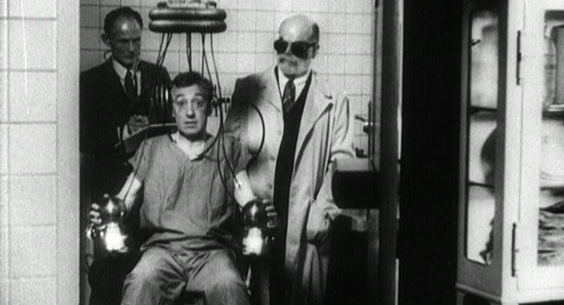
 |
| Photo © 1983 Orion Pictures |
| Academy Award Nominations: | |
| Best Cinematography: Gordon Willis | |
| Best Costume Design: Santo Loquasto | |
| Golden Globe Nominations: | |
| Best Picture (Musical/Comedy) | |
| Best Actor (Musical/Comedy): Woody Allen | |
| Other Awards: | |
| New York Film Critics Circle: Best Cinematography | |
| Permalink | Home | 1983 | ABC |